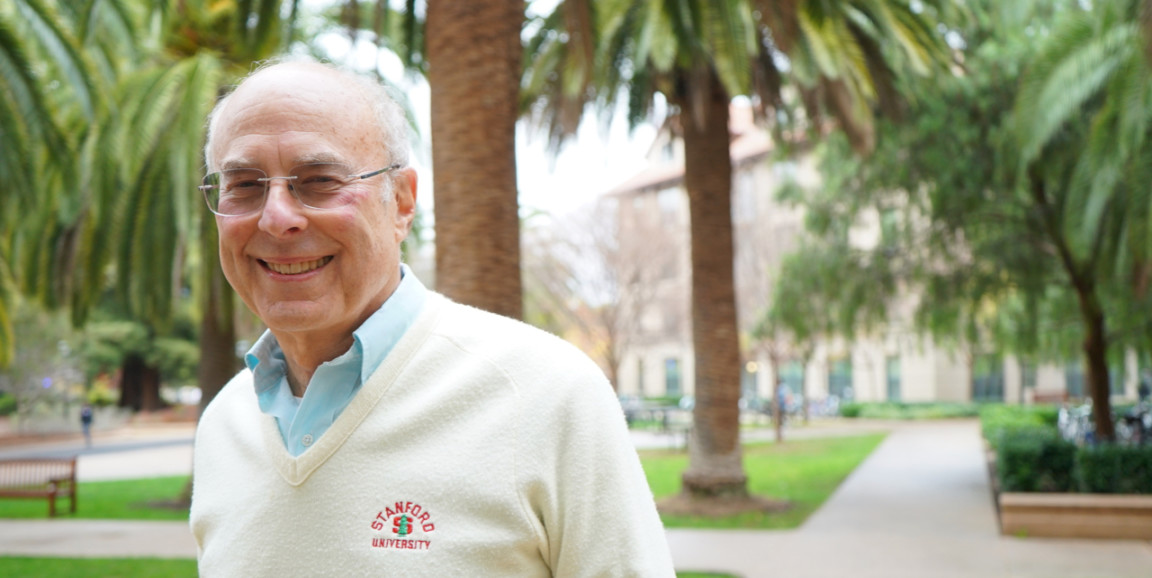Today if anyone walks into Stanford Hospital's Marc and Laura Andreessen Emergency Department -- or any other emergency department in the United States -- they can receive emergency or stabilizing care, even if they have no money.
The law that guaranteed that access -- the Emergency Medical Treatment and Labor Act (EMTALA) -- passed in 1986. It prevented hospitals from turning away patients in emergencies or transferring unstable patients to other facilities if they couldn't provide proof of payment.
But that legislation created new problems, problems that Stanford emergency physician Michael Bresler, MD, played a key role in resolving.
Shortly after the EMTALA was enacted, Bresler said he attended a reception and heard a few lawyers say that they felt the law was not strong enough and that California should add prison terms for physicians who turned patients away. Bresler's response to the lawyers, as he recalls, was: "You want me to support sending physicians to prison? The problem is economics, so let's see if we can solve it at its root."
Earlier in the evening, Bresler had been chatting with another guest who mentioned a Virginia law that added surcharges to vehicular moving violations to help fund the courts. Bresler, then president of the California chapter of the Academic College for Emergency Physicians, went home and wrote a rough draft of state legislation to add a 10% surcharge on moving violations to support indigent patients. He then reached out to former State Senator Ken Maddy to sponsor what became known as the bill creating a Maddy Emergency Medical Services Fund in each county to finance care for those who couldn't pay.
"We knew we would have problems getting it passed, because everyone liked the idea and wanted a piece of the action: hospitals, other physicians, EMS agencies, and county governments," Bresler said.
Some opponents claimed it was just an effort led by doctors to get money.
Bresler recalled the scene: "Well, the committee chairman slammed his hand down on the desk and said, 'These doctors are doing God's work. They're the real heroes... Now, anyone else have anything to say about this fine piece of legislation?' And no one else did."
The measure passed.
I asked Bresler if a particular case compelled him to get involved. He responded that it was a lifetime of cases. "Every day and night, we treat the uninsured, the homeless, the people whom our society has marginalized, or in many cases, outright rejected."
"I grew up in D.C. and always loved politics," Bresler said. "And this was an example of how you can change the system. A perfect example of democracy. It wasn't what we hoped for initially, and nobody was perfectly satisfied but it was a compromise. That's how democracy works."
Bresler did not stop at the state level. He also realized emergency medicine physicians were taking a hit because of EMTALA wording.
He said he woke up one night and wrote a draft of two additions to the federal law. The first was a whistleblower clause -- if an emergency medicine physician reports a hospital violation, they cannot be fired. The second addition ensures that so long as an emergency medicine physician has reached the limit of what they could do to help a patient, but the hospital or specialist won't admit the patient, the emergency physician will not be held liable.
His changes became law.
"It helps patients medically and financially. And it also makes physicians really think about what is considered 'stable,'" Bresler said. "And a lot of hospitals in low-income areas might have folded without that funding. But it's by no means a solution to the uninsured and underinsured problem."
And while the Affordable Care Act was intended to provide blanket health care coverage, many Americans remain un- or underinsured. Providing care for all is the right thing to do, although there is also a very practice reason to care for everyone, Bresler emphasizes. "Treating illness, particularly infections, is a public health issue that affects everyone, insured, under-insured, or uninsured."
He pauses, "We have a saying in emergency medicine: 'No shoes, no shirt, no money? No problem. We are here for you.'"
Photo by Susan Coppa




